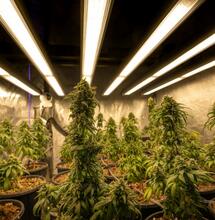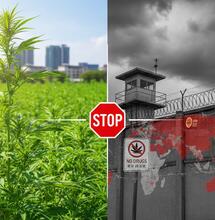Dealing with Cannabis Use on the Workplace

Not all jobs are made equal. It might be perfectly fine to be high while on your bartender shift, making drinks and chiming the happy hour. The worst you can do is probably mix someone’s order, but hey, doesn’t that happen even when you are perfectly sober. It’s much harder to imagine navigating an airplane or doing an open heart surgery while high, right?
Can Cannabis Use Become Accepted in the Workplace?
Most people are incapacitated after THC exposure. Therefore, most jobs demand that you’re not under the influence of weed while on your work shift. Unless you are your own boss and you don’t have to listen to anyone’s orders. Not everyone is in that position, but ambition should never be underestimated.
Even if you are your own boss, and it was your life goal to freely smoke weed whenever you wanted, even then, you will likely face situations that demand the utmost attention and clarity of thought. Or, if you’ve ‘converted’, perhaps cannabis is what gives the much needed attention boost everyone’s seeking.
Jokes aside, returning a positive THC result during a random employee check-up can be an expensive adventure, earning you penalties or even making lose your contract in some places. And this still happens, in 2025. Perhaps not as much as in the past, but it goes on.
Where Employees Have Cannabis Workplace Protections?
About half of 38 U.S. states with legal medical cannabis have policies that try to address anti-discrimination for medical cannabis patients. A few states require employers to accommodate this group of workers.
But the other discussion, that may concern a larger number of people, is about recreational use of cannabis. While off-duty consumption of weed should be an universal right, and is achievable for most professions, sadly it is yet another road with obstacles. Less than dozen legal states have laws that protect employees and somewhat enable them to be worry-free about what they medicate with or how they have fun in their leisure hours.
Here’s the list of states that have recreational cannabis anti-discrimination employee protections:
- California (since 2022)
- Connecticut (since 2021)
- Montana (since 2021)
- Nevada (since 2019)
- New Jersey (since 2021)
- New York (since 2021)
- Rhode Island (since 2022)
- Washington (since 2023)
These ‘freedoms’ can be lost. In Maine, protective cannabis measures supposed to benefit the workforce were repelled in 2017. Fortunately, since then, the list of legal states approving work-related provisions regarding cannabis use has kept on growing.
Balancing Safety, Productivity and Employee Rights
It’s understandable why it’s important not to be high on some jobs, such as if you’re a doctor, a nurse, teacher, pilot, truck driver, etc. Those are some of the occupations that demand being 100% clear-headed. In these cases, the use of any substance, whether it’s cannabis, alcohol or prescription medications, can jeopardize safety and the ability to deliver on daily assignments.
The problem here is regulation that is not always flexible. Because there also exist other professions in which working people can take advantage of cannabis. The obvious example would be the artistic, entertaining or writing occupations, where weed can charge up the mind, getting it going with ideas. Or better performance if pot is what fuels the performer.
Of course, even around risk-free jobs there should be wisdom about how much cannabis is okay to take. Most often, a few puffs are enough to reset the brain for a new marketing campaign brainstorm session, or developing a concept for a movie script. Do it too much and it might ruin your productive self. People are also creatures of habit. Some people would just get more productive and more creative under the influence of a little bit of weed. While others won’t have it so well.
In a perfect world, there shouldn’t be a big fuss if someone was a bit high, yet fully-functional and doing their job. If they delivered promptly and correctly, and didn’t make uncomfortable situations, why should there be a problem? Protections and provisions related to cannabis and the workplace should be about flexibility, where applicable. It is for those sectors which can welcome the idea that cannabis might be something of a benefit to the company, while maintaining the well-being of all employees - users and non-users alike.
Where there is more opportunity to get progressive is off-duty cannabis use, which should not be a source of potential problems in any profession. Everyone should be free to do what they want with their free time, without the fear if they did something - like innocently lighting up - that they will be sent for a test at some point and answer to a superior.
In the desired outcome, cannabis should be treated like alcohol and sugars. Nobody tests if you drank alcohol over the weekend. Nobody tests if you ate too much cake. Why would someone make a problem if it was weed on your free Saturday night? As long as you don’t look like a red-eyed dinosaur in the office, all should be fine, really.
More on this topic from Soft Secrets:










